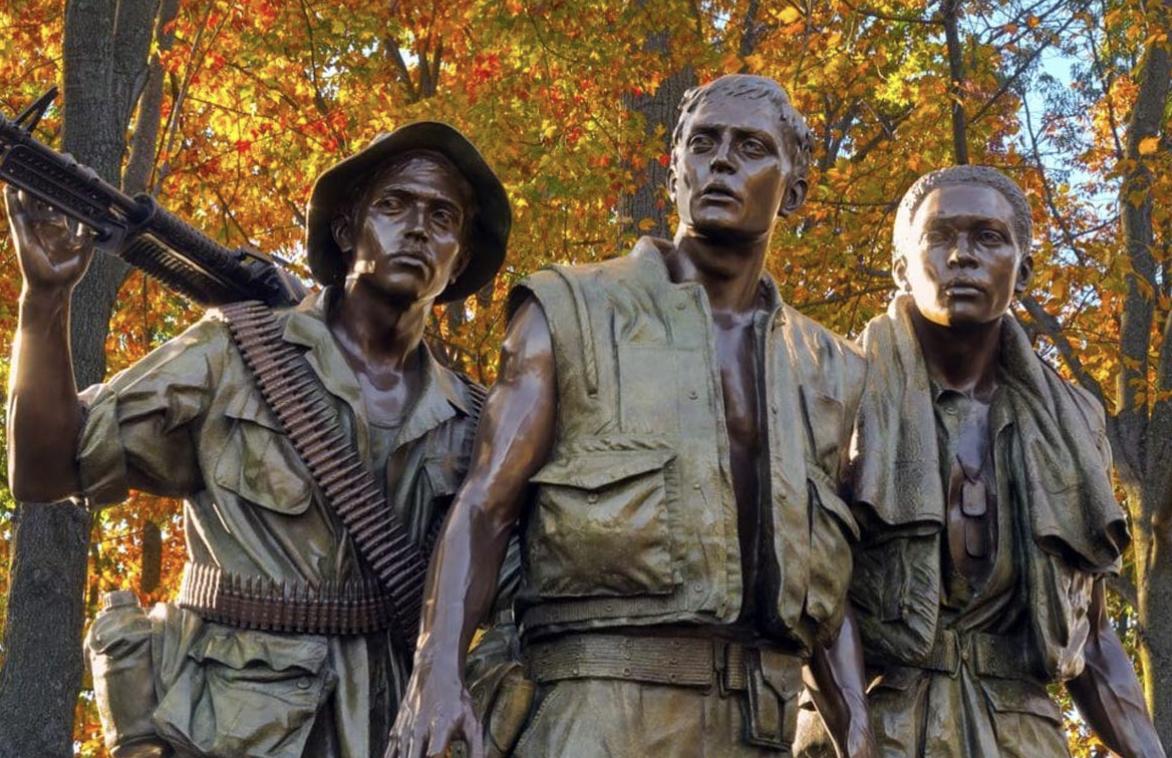A comment offered last week by a reader addressed the shameful homecoming encountered by Viet Nam veterans returning from an unpopular war that split the country during the turbulent 1960s. The observation was spot-on.
Soldiers returning home through San Francisco International Airport could not change into civilian clothes fast enough to avoid sneers and worse, being spat upon. Americans disgusted with the war expressed themselves in displays of unconscionable behavior.
The soldiers took the brunt of criticism that would have been more appropriately aimed at the highest-ranking policymakers in the White House and the Defense Department, including Presidents Johnson and Nixon and Secretary of Defense Robert McNamara.
McNamara later apologized for his rosy predictions of victory when he knew better and opted for deceit. Johnson too knew that American forces faced little prospect of success in a conflict where the North Vietnamese Army and Viet Cong guerrilla fighters turned U.S. opinion against the war with the Tet Offensive. The South Vietnamese government was corrupt.
We lost 58,000 lives by backing the wrong horse and believing we could intervene successfully in a civil war. Then, unfortunately, the My Lai Massacre so enraged the American public that provocative charges of “baby killers” dominated public discourse.
Our soldiers (used generically to describe all military personnel) deserved far better treatment and respect than came their way. They should not have felt compelled to hide their service on behalf of an unappreciative public.
They fought amid horrible conditions, confronting an enemy who knew the terrain better than they, who often were invisible and, either through coercion or shrewdness, garnered the support of villagers and townspeople.
Many veterans suffered from Post-Traumatic Stress Disorder (PTSD) before it was understood, and before the military accepted it as an acceptable response to combat, not a sign of emotional weakness. I also suggest that the disgraceful receptions that greeted our returning veterans exacerbated the already fragile states of many veterans.
I served in the Maryland Army National Guard with a non-commissioned officer who had served as an infantry soldier in both Korea and Vietnam. He was my first sergeant in a small public affairs unit that I commanded and led in a 15-day training exercise in Panama and Honduras. When in Honduras, we stayed in an encampment that reminded my first sergeant of Da Nang in Vietnam.
Shortly after returning stateside, this terrific NCO, whom I grew to like and admire, began to suffer from PTSD. The encampment triggered disabling memories. He was helpless in fighting past demons. He experienced guilt that he survived fierce combat, in one case in Korea the only person to do so. He no longer could function in a military environment. He would wander away. It was tragic.
Fortunately, he received sensitive and humane treatment from a Veterans Administration psychiatrist. He also gained a substantial disability status. To gain that disability, I had to certify as his commanding officer that he was unfit for duty. At his wife’s behest, I did so. I regretted that his outstanding career ended on a low note.
I often think about him. He was a good person and great soldier.
Our returning veterans deserve our gratitude and admiration. They served bravely and loyally. They risked their lives. They lost close buddies. They witnessed human destruction. They were young and unequipped, naturally so, to handle constant death.
The reader’s comment in response to last week’s column about my conversation with three Viet Nam veterans was right. He struck a nerve.
Columnist Howard Freedlander retired in 2011 as Deputy State Treasurer of the State of Maryland. Previously, he was the executive officer of the Maryland National Guard. He also served as community editor for Chesapeake Publishing, lastly at the Queen Anne’s Record-Observer. In retirement, Howard serves on the boards of several non-profits on the Eastern Shore, Annapolis and Philadelphia.



Michael Heffron says
As one of those who returned via Travis AFB I can attest to the treatment we received.
Before we were allowed to receive ourvHonorabe Discharge at TAFB we were told we our hair had to be cut to Military standards. We all grumbled about this CS requirement but did as ordered just to keep the process moving. Then we were “advised” to change to civilian clothes before departing the base. Once trimmed, dressed and processed we were bussed to San Francisco International Airport. So when we well groomed boys stepped off a big blue bus with United States Air Force on the front, rear and both sides we were anything but incognito to the local welcoming committee. I need not provide the details of that greeting except to say we all kept our heads down and mouths shut. Why? Because we were made to feel ashamed.
I will never forget nor will I forgive what I saw, heard and endured on June 9, 1972 and I will never fail to offer a greeting of “Welcome Home” when I see another Vietnam vet.
Howard Freedlander says
Thank you, Michael. You and your fellow vets deserved thanks, not condemnation. You served. You represented the best traits of American citizens.